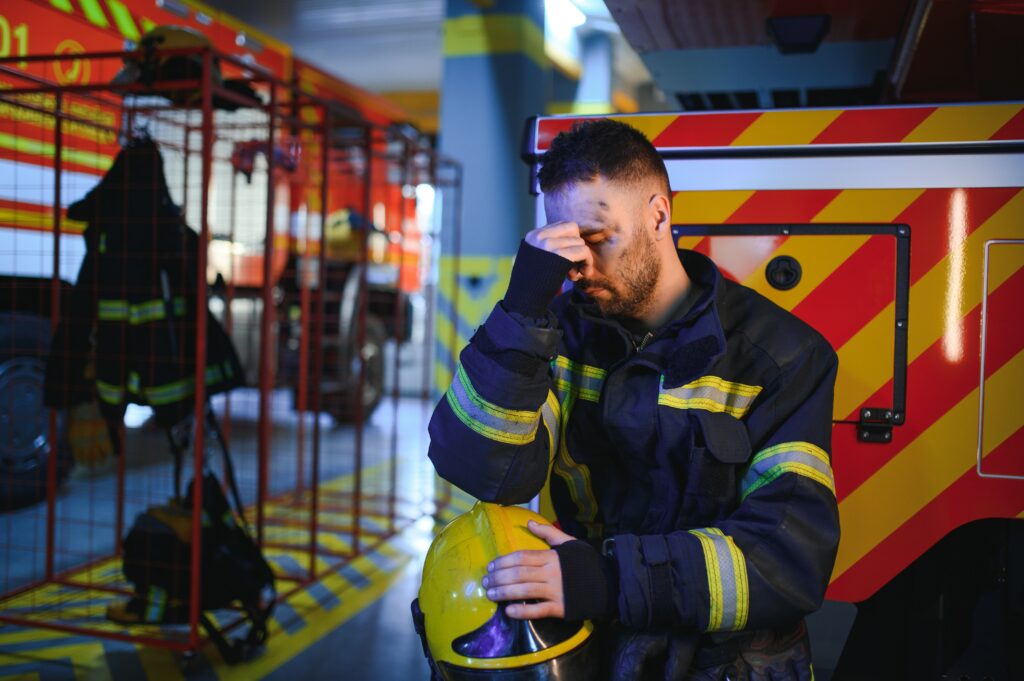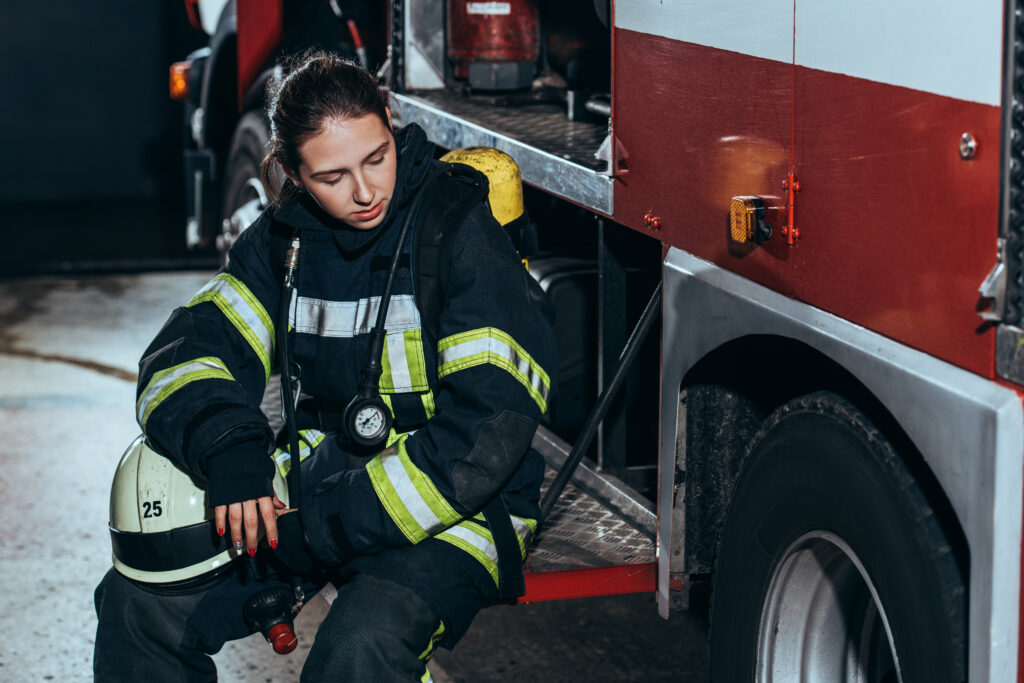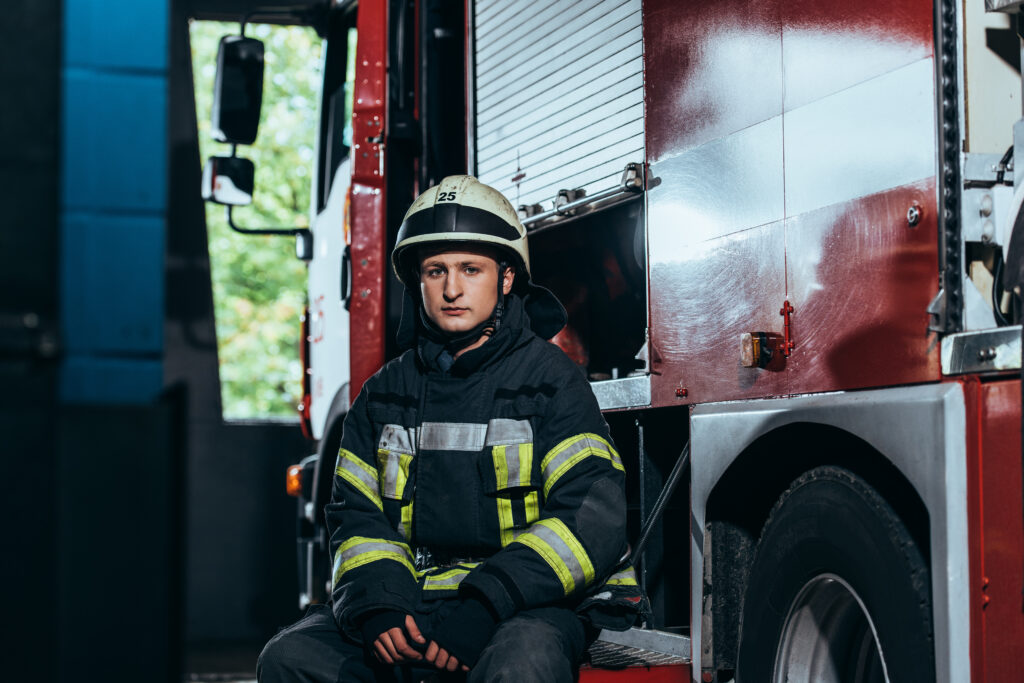Recognizing the Signs of Anxiety in First Responders
3/6/2025 by Markie Bryant

First responders, like firefighters, police officers, and paramedics, face unique challenges that can take a toll on their mental health. It’s important to recognize the signs of anxiety they may experience, so they can get the help they need. This article will highlight key indicators and offer strategies for support.
Key Takeaways
- First responders often show anxiety through increased irritability, withdrawal from social interactions, and changes in work performance.
- Emotional signs like persistent hopelessness, mood swings, and loss of interest in enjoyable activities can indicate distress.
- Physical symptoms such as chronic fatigue, unexplained ailments, and sleep disturbances are common among anxious first responders.
- Organizational culture, including stigma and lack of mental health resources, greatly impacts the mental well-being of first responders.
- Substance use is a common coping mechanism, and recognizing the signs of substance abuse is crucial for early intervention.
Common Behavioral Signs of Anxiety in First Responders
First responders often face intense situations that can lead to mental health challenges. Recognizing the signs of anxiety in first responders is crucial for early intervention and support.
Increased Irritability and Anger
One of the common signs of anxiety in first responders is increased irritability. They may become easily frustrated or angry over minor issues. This change in behavior can affect their relationships with colleagues and family members.
Withdrawal from Social Interactions
Another sign is withdrawal from social interactions. First responders might start avoiding gatherings or isolating themselves from friends and family. This withdrawal can be a coping mechanism to deal with their stress and anxiety.
Changes in Work Performance
Changes in work performance are also notable. A first responder experiencing anxiety may show a decline in their job performance. They might miss deadlines, make more mistakes, or seem less focused on their tasks.
It’s important to notice these behavioral changes early to provide the necessary support and resources. Addressing these issues can help improve their overall well-being and job performance.
Emotional Indicators of Distress

Persistent Feelings of Hopelessness
First responders may experience persistent feelings of hopelessness. This can manifest as a constant sense of despair or feeling trapped in their situation. They might express excessive guilt or overwhelming sadness, which can be a sign of deeper emotional distress.
Mood Swings and Emotional Outbursts
Mood swings and sudden changes in behavior are common. One moment they might seem fine, and the next, they could have an emotional outburst. This irregularity of emotions can be a clear indicator that something is wrong.
Loss of Interest in Enjoyable Activities
Another sign is a loss of interest in activities that used to bring joy. They might withdraw from hobbies or social interactions, showing a noticeable change in their engagement levels.
When you notice someone displaying these symptoms, it’s time to take them aside and speak to them about their mental health.
Physical Symptoms of Anxiety and Stress

Chronic Fatigue and Exhaustion
First responders often face chronic fatigue and exhaustion due to the high demands of their job. This constant tiredness can make it hard to stay alert and perform tasks effectively. Over time, this can lead to more serious health issues.
Unexplained Physical Ailments
Anxiety and stress can cause various unexplained physical ailments. These might include headaches, stomachaches, and back pain. These symptoms are the body’s way of signaling that something is wrong and needs attention.
Sleep Disturbances
Sleep disturbances are common among first responders dealing with anxiety. They might experience trouble falling asleep, staying asleep, or waking up too early. Poor sleep quality can further exacerbate stress and anxiety, creating a vicious cycle.
It’s important to recognize these physical symptoms as signs that the body is under stress. Addressing these issues early can help prevent more severe health problems down the line.
Impact of Organizational Culture on Mental Health

Stigma Around Seeking Help
In many first responder organizations, there is a stigma around seeking help for mental health issues. This stigma can prevent individuals from reaching out for the support they need, leading to worsening mental health conditions. Creating a supportive culture where mental health is openly discussed and seeking help is encouraged is crucial.
Lack of Mental Health Resources
Many organizations lack adequate mental health resources, such as counselors, psychologists, and peer support programs. This shortage can leave first responders without the necessary tools to manage their stress and anxiety effectively. Implementing comprehensive mental health programs can make a significant difference.
Pressure to Maintain a Tough Exterior
First responders often feel pressured to maintain a tough exterior, which can make it difficult for them to express vulnerability or seek help. This pressure can contribute to poor mental health and declining morale in the organization. Encouraging open communication and creating an environment where vulnerability is accepted can help alleviate this issue.
Substance Use as a Coping Mechanism

Increased Alcohol Consumption
First responders often face intense stress and trauma, leading some to turn to alcohol as a way to cope. This can start as occasional drinking but may escalate into a serious problem. Increased alcohol consumption can affect their ability to perform their duties and harm their personal lives.
Use of Prescription or Illicit Drugs
In addition to alcohol, some first responders may use prescription or illicit drugs to manage their stress. This behavior can quickly lead to addiction, creating a cycle that’s hard to break. The use of these substances can further complicate their mental health and professional responsibilities.
Recognizing the Signs of Substance Abuse
It’s crucial to recognize the signs of substance abuse early. These signs can include changes in behavior, neglecting responsibilities, and physical symptoms like unexplained weight loss or poor hygiene. Early intervention can help prevent the situation from worsening.
There is a tragically close connection between addiction and emergency responders, who often turn to alcohol or drugs to cope and socialize.
Risk Factors for Mental Health Issues in First Responders
First responders face unique challenges that put them at a higher risk for mental health problems. These challenges can lead to conditions like PTSD, depression, and anxiety. Here are some key risk factors:
Exposure to Traumatic Events
First responders often witness traumatic events that can have a lasting impact on their mental health. This constant exposure can lead to PTSD and other serious conditions.
High-Pressure Work Environment
The nature of their job involves high-stress situations and long hours. This can result in feeling overwhelmed and burned out, making it hard to maintain good mental health.
Disruption of Personal Life and Relationships
The demanding schedule and emotional toll of the job can disrupt personal relationships and family life. This can lead to feelings of isolation and disconnection.
It’s important to recognize these risk factors to provide better support and resources for first responders.
Strategies for Supporting Mental Health in First Responders
Creating an environment where first responders feel safe to express their feelings is crucial. Encouraging open dialogue about mental health can help reduce stigma and foster a supportive community. Regular check-ins and team meetings can provide opportunities for individuals to share their experiences and seek support.
Ensuring that first responders have easy access to mental health professionals is essential. This includes offering services like professional counseling, peer support programs, and mental health hotlines. Training programs that focus on resilience can also help first responders develop coping strategies to manage stress.
Promoting a healthy work-life balance is vital for the well-being of first responders. This can be achieved by implementing policies that allow for flexible scheduling, mental health leave, and encouraging participation in hobbies and social activities. Building resilience through these activities can help first responders manage stress and reduce the risk of mental health issues.
Conclusion
First responders face unique challenges that can take a toll on their mental health. Recognizing the signs of anxiety and other mental health issues is crucial for early intervention. By being aware of the symptoms and offering support, we can help these brave individuals manage their stress and maintain their well-being. Remember, seeking help is a sign of strength, not weakness. Let’s ensure our first responders have the support they need to continue their vital work.
Frequently Asked Questions
What are the early signs of anxiety in first responders?
Early signs of anxiety in first responders can include increased irritability, withdrawal from social interactions, and noticeable changes in work performance.
How can I tell if a first responder is dealing with emotional distress?
Look for persistent feelings of hopelessness, mood swings, emotional outbursts, and a loss of interest in activities they used to enjoy.
What physical symptoms might indicate anxiety or stress in first responders?
Physical symptoms can include chronic fatigue, unexplained physical ailments, and sleep disturbances.
How does organizational culture affect the mental health of first responders?
Organizational culture can impact mental health through stigma around seeking help, lack of mental health resources, and pressure to maintain a tough exterior.
Is substance use a common coping mechanism for first responders?
Yes, some first responders may turn to increased alcohol consumption or use of prescription or illicit drugs as a way to cope with stress and anxiety.
What can be done to support the mental health of first responders?
Supporting their mental health can involve promoting open communication, providing access to mental health resources, and encouraging a healthy work-life balance.